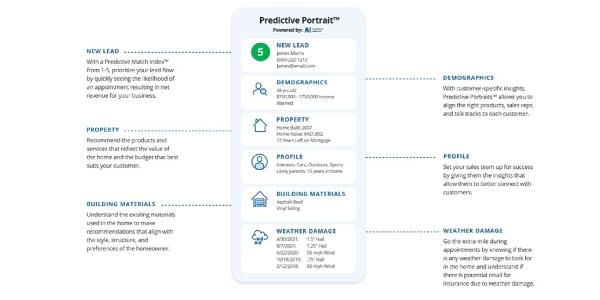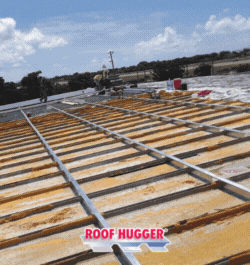UP TO THE MINUTE
How heating, ventilation and air conditioning sectors are adopting new technology
June 4, 2025 at 6:00 a.m.By Malco.
Learn about the impacts of AI and automation on the crucial HVAC industry.
Like many of the industries around the world, HVAC is on the cusp of a digital revolution. This is because of the development and advancement of automation and artificial intelligence (AI). The impact of these technologies looks different for every industry. In the HVAC world, it is their sensing, learning and problem-solving capabilities that are really changing the game in terms of enhanced efficiency. This article from the experts at Malco dives into the innovative solutions, new business models and unique challenges that the HVAC professionals can expect with this technological revolution.
Benefits of automation and AI for the HVAC industry
Enhanced performance and energy efficiency
One of the significant advantages of automation and AI in the HVAC industry is optimizing system operation and maintenance. These technologies can dynamically adjust the temperature, humidity, airflow and pressure based on real-time data. They can also detect and diagnose anomalies and inefficiencies. For instance, they can offer recommendations or solutions to prevent breakdowns and save energy. This enhances the performance and energy efficiency of HVAC systems and assures customers that their comfort and expectations are being met. Furthermore, it reduces the need for manual intervention, leading to substantial cost savings.
Improved customer experience
Automation and AI can enable more personalized and responsive customer services by allowing customers to control and monitor their HVAC systems remotely using smart devices. They can also give customers insights and feedback on their HVAC usage, performance and savings.
Reduced costs and risks
Automating labor-intensive and repetitive tasks like testing and repair can lower HVAC system costs and risks. It can also reduce human errors, accidents and injuries and ensure compliance with safety and environmental standards.
Innovative products and services
These improvements can enable the development of new and improved products and services for the HVAC industry, such as smart thermostats, sensors, actuators, controllers and software, that can integrate with other systems and platforms, such as the Internet of Things (IoT), cloud computing and blockchain. They can also enable new business models and revenue streams, such as predictive maintenance. These offerings can help businesses that adapt stand out from the competition.
Challenges of automation and AI for the HVAC industry
Data and security management
Automation and AI rely on large amounts of data to function, which requires proper collection, storage and analysis. However, data management can be challenging due to its diversity and volume. Moreover, the risks of cyberattacks and data breaches can compromise data security and privacy.
Change and uncertainty adaptation
These changes can disrupt the HVAC industry’s existing processes, which require adaptation and flexibility from stakeholders such as manufacturers, contractors, technicians, engineers and customers. These advancements can create uncertainty and unpredictability and their success depends on people being open to change and improvements to old processes.
Opportunities for the future of the HVAC industry
A more sustainable and resilient HVAC industry
Automation and AI can help the HVAC industry achieve its sustainability and resilience goals by reducing its environmental impact, enhancing resource efficiency and increasing adaptability and robustness to changing conditions and demands.
Expanded scope and value of the HVAC industry
It can also help the HVAC industry expand its scope and value by integrating with other sectors and domains, such as intelligent buildings, smart cities, smart grids and innovative health and by providing more value-added and customer-centric services and solutions.
Conclusion
Automation and AI are transforming many industries, bringing unique benefits, challenges and opportunities to each sector. The HVAC industry must embrace and leverage these technologies by adopting a strategic and proactive approach considering the technical and economic aspects. Automation and AI can help the industry achieve its vision of providing the world with comfort, health and safety while contributing to global sustainability and resilience goals.
Original article and photo source: Malco
Learn more about Malco Tools in their Coffee Shop Directory or visit www.malcoproducts.com.
Recommended For You

A gamechanger for custom metal building projects
Read More ...
Eagleview launches season 2 of The Altitude Podcast focusing on effective management in times of volatility, uncertainty and change
Read More ...
Make the Most of Lead Opportunities and Captures With Predictive Portraits™
Read More ...

















Comments
Leave a Reply
Have an account? Login to leave a comment!
Sign In